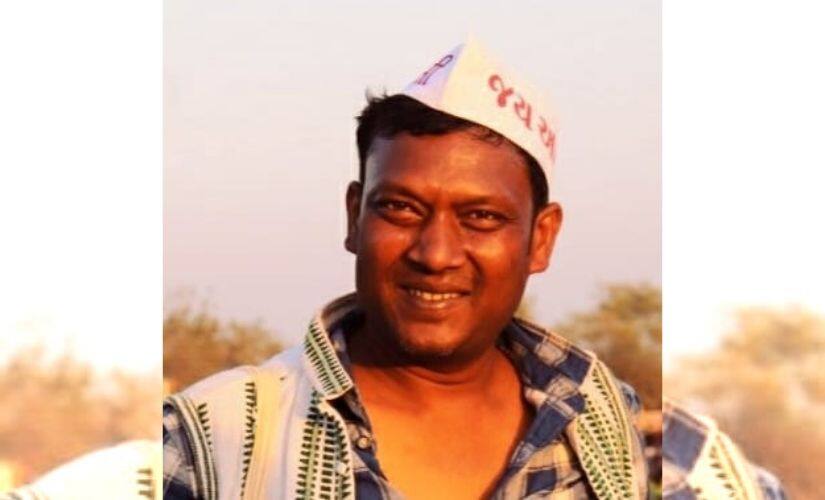Abhay Xaxa’s association with the National Campaign on Dalit Human Rights started in the year 2012, with him being young, full of energy, and carrying a fire in his eyes. He never had small plans; he dreamed big about empowering the Adivasi and Dalit communities with access, rights and entitlement. Even though he was crusading for Adivasi rights, one must not forget that he was a human rights activist first, with expertise in bonded labour, Dalit rights, Adivasi rights, budget rights, education justice, among several other subjects. However, strangely, we choose to only perceive and remember him as an Adivasi rights activist. With his passing away, the loss is being felt by the entire human rights fraternity right now. If there was one Adivasi leader who was trying to build bridges between the two communities of Dalits and Adivasis, undoubtedly, it was Abhay. He was fondly referred to as ‘Dada’ or ‘Baba’ by his peers and colleagues, which made him more than just a co-worker — it made him a brother and a friend. Abhay would love to dress up in a suit, and would ask, “Don’t I look dapper in this?” His face would almost instantly light up on receiving a compliment. [caption id=“attachment_8177121” align=“alignnone” width=“825”]
 Abhay Xaxa. Facebook/abhay.xaxa[/caption] His presence at team meetings would mean sparks of new ideas, different perspectives, and an understanding so sound that it felt like he was born to rule. He was ready to take on challenges, perhaps far more than he could handle sometimes, and yet, his indomitable spirit and willingness to go beyond his call of duty was what made him stand out. His humility and childlike demeanour kept him going inspite of everything happening around him. Abhay’s commitment towards protecting the rights of Adivasis and ensuring that their voices are heard was second to none. His lifelong strife entailed bringing the issues of Adivasis and the Tribal communities to the mainstream, to make certain that the policies took into account the views of said communities. Through his being and effort, he touched many lives, with the youth looking to him for guidance and wisdom, considering his deep understanding and knowledge of policies, their implications, implementations, flaws, limitations, while always being armed with suggestions to improve them. One was often left wondering about the depth and extent of his knowledge, and how he managed to acquire so much of it. Evidently, Abhay Xaxa’s aspirations were big, sometimes too big, with people often failing to live up to them. He would always say: “My dream is to work for my people, it is my responsibility to do this, as many people are looking to me for leading the movement.” Through his life, Abhay inspired several young people to push their limits and cross several hurdles, which he went through himself in order to accomplish what he did. As a result, he was visibly quite excited to complete his PhD, thereafter wanting to work as a professor, as he felt that it would allow him to contribute to the lives of young people. One of Abhay’s deepest regrets was not being able to teach on account of encountering insurmountable barriers put in place by institutions, which ultimately proved to be extremely frustrating and disappointing for him. However, this did not deter him. He went on to mobilise the Adivasis, and build a strong movement towards their fight for forestland, water, mountains, in turn striving to break the existent cultural hegemony. The tribal Sub-Plan was Abhay’s passion. Despite its many loopholes, both the Centre and States were using the strategy against tribal interests, which made the activist challenge and start a movement against it, and claim budget resources as Adivasi rights. He was part of a small group that drafted a legislation for sub-plans. This was testimony to his uncanny ability of successfully reaching out to both the youth and the old, the academics and the activists, while trying to build ways to connect two different worlds. Today, we grieve but also celebrate Abhay Flavian Xaxa, and his immense contribution to the Adivasi movement. He refused to accept Adivasis as an esoteric-ethnic community, but also felt that they bring a strength of sustainability, which the wider society needs to accept. He held conviction about the rights of the tribal community, besides being a strong believer of consolidating Adivasi leadership. His profound commitment to ensuring social justice and making one believe that without putting the voices of the marginalised — whether it is the Dalit or the Adivasi community — no policy will be effective in bringing about development. His dedication and focus on these issues led him to initiate the National Campaign on Adivasi Human Rights, in order to help them find their feet in mainstream society. Abhay’s source of inspiration came from the very lives and struggles of the Adivasi communities, their culture, their habits, but he did not want any of this to be appropriated. He believed another world is possible, where we actively educate, organise, and agitate against all the injustice that is happening to Adivasis.
As we remember Abhay Xaxa’s steel, determination, and his intellect to think beyond the reasonable, we also need to remember that he fought hard to break notions, build bridges and strengthen a stoic image of the marginalised communities in India.
Advertisement
End of Article


)
)
)
)
)
)
)
)
)



